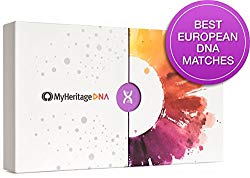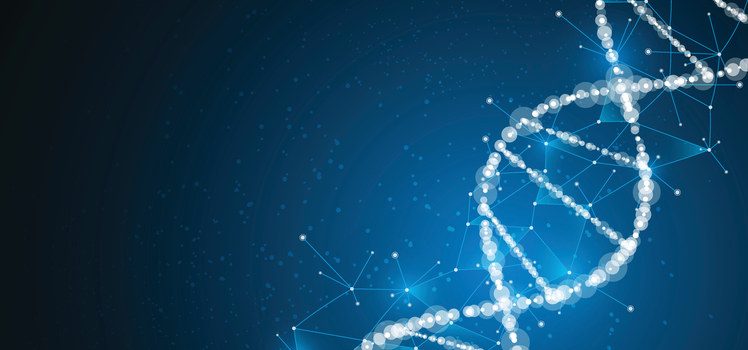
If you’re like I was a couple of years ago, you may be asking yourself, just what is a DNA test, and should I get my DNA done?
What is a DNA test?
It seems like a simple-enough question, doesn’t it? A DNA (deoxyribonucleic acid is the scientific term) test shows how DNA molecules are passed down through the generations of a family. DNA testing often shows how families are related or disproves it. I just recently got my DNA results a couple of weeks ago and it was exciting to see the results. As it turns out I have a high concentration of DNA connections in the deep south of the United States, which I figured since my dad is from Texas, and have some Scandinavian roots which took me surprise. I can’t wait to research that a bit further. I will discuss the deeper science behind DNA further in the article.
The major DNA kits available:
- Ancestry DNA: Largest database and easy for beginners
- 23andMe DNA and health assessment: Great ethnicity results and health assessments
- My Heritage DNA: Best European matches
(Disclaimer: This post contains affiliate links. If you purchase products or services, we make small commission. We really appreciate it!)
DNA can be a game-changer
DNA is a game-changer if you want to learn who you are and stunning breakthroughs are happening every day. What story will your DNA tell? “DNA picks up where the paper trail leaves off,” DNA expert and genealogist CeCe Moore told us at RootsTech. In candid interviews, Moore and other genealogists shared stories of jaw-dropping discoveries they have personally made, and also explained common surprises and results. Uncanny emotional connections are often confirmed by DNA, grounding people in new ways – ways they may not have even expected. The numbers can still be a bit complex, though, so this article walks through what a DNA test will (and won’t) reveal, and how professionals dig deeper.
DNA is helping adoptees meet living relatives and is showing people the roots of their heritage. It is also an amazing tool to confirm or refute genealogy that has been done on paper (hint: family trees can be totally wrong!) Presenters at RootsTech shared stories of an African-American man reunited with living relatives in Africa distanced by slavery, an elderly man separated by war as a child learning he had a living sibling and meeting him, and even babies switched at birth. DNA is especially poignant for many African-Americans because the documents are so difficult to track. Expert Kenyatta D. Berry, co-host of Genealogy Road Show shared great insights.
Related: we highly recommend books and information by Dr. Penny Walters, professor at the University of Bristol. Her books are Ethical Dilemmas in Genealogy and The Psychology of searching.
What genetic genealogist experts have to say about DNA
Moore has been a keynote presenter at RootsTech is a genetic genealogist who has appeared on numerous television shows like Finding Your Roots, 20/20, The Doctors and the Dr. Oz Show talking about what she knows. She is a genetic genealogy consultant for Finding Your Roots and the Genealogy Roadshow. We were able to sit down and ask her some questions during RootsTech. She explained that family trees can be incomplete or flat-out wrong, which is where DNA shines.
DNA testing can break down brick walls
For example, my husband, who is an avid genealogist, has hit a brick wall with an ancestor in Louisiana. He just can’t get past it. With his DNA test, his aunt’s, his cousin’s and his uncles, he confirmed that their greatest concentration of ancestors comes from Great Britain – something he was unsure of before. Now, he can pick up where the paper trail leaves off.
Moore summarized three components relating to the discoveries knowing our DNA can provide:
- DNA confirms the paper trail.
- DNA refutes the paper trail.
- You can make new discoveries.
As far as refuting the trail, she talked about a woman who called herself “Irish Alice.” When she took her DNA test it came out that she was 50 percent Ashkenazi Jewish. What a shocker! As other family members took the test they learned that her great-grandfather did not match his siblings at all. They were not related by blood! It took several years and lots of research but she finally made the connection through a second cousin when their DNA lined up. With some more paper research (and a big dose of luck) they discovered that their great-grandfather had been switched at birth. There wasn’t much to be done because it was over 100 years ago, but Irish Alice knew that both boys had struggled with identity questions; they were simply not like other members of the family. Moore joked that people shouldn’t rush to the conclusion that they were switched at birth if DNA reveals something different than what they have known all along, but sometimes, it does.
One blogger in our small-group interview asked why her mother, of Mexican descent, would find out she really wasn’t Mexican at all. Moore’s answer – there is not a category on paper for Mexican, so it would never be listed that way in a DNA result. It will be a mix of other origins: it is often a surprisingly high percentage of indigenous/Native American plus Iberian (Spanish) or other European, plus some Sub-Saharan-African. All of that equals Mexican. Below is the video of her answer.
Biological Bonds are Strong
In her keynote address, CeCe noted that DNA helps human beings connect – something we all long for. “It’s providing answers to hundreds of thousands – maybe even millions of people,” she said. One of the most important things she’s learned is how strong biological bonds are. She doesn’t want to push aside nurturing, but has found that our ancestors live on through us and that nature has a “profound effect on who we are.” DNA helps genealogists find out everything they can, not just what appears on a chart.
CeCe Moore’s own family discovery
People are now going to DNA as a first step to find their ancestry and then connecting the paper trail – making new discoveries. Moore talked about how this very thing has affected her own family. Her brother-in-law John showed a lot of interest in Moore’s work and said he didn’t know much of his history. Going in, he thought he was of Native American descent. When DNA results came back he had no Native American and was 6.6 percent African. “Where did that come from?” she said. His mother was tested as well – just over 12 percent African. They then traced the paper trail which turned out to be pretty easy. They found that in 1870 his great grandmother and great great grandmother were living with a man named Madison Hemings. The name sounded familiar. So they went to a historian/census taker to see who that may be. Guess what? He wrote back, “This man is the son of Thomas Jefferson!” So Moore’s brother-in-law is the fourth great grandson of Thomas Jefferson and Sarah Hemings, the slave Thomas Jefferson had a relationship with. Dumbfounded, Moore called her sister to tell her. They found a family photo on the Monticello website of Madison Hemings’ granddaughter Emma Bird Young and her family. When they saw the photo, John’s jaw dropped to the floor. That very same photo was hanging on John’s wall – a photo of his relatives. But now, he suddenly knew who they were.
“This man that grew up as a fatherless boy discovered that he is a descendent of one of our Founding Fathers.”
CeCe Moore
He is also in the genome exhibit at the Smithsonian. “It has been life-changing,” Moore said. Prior to the discovery he had visited Monticello and fell in love with it – felt a deep connection somehow.
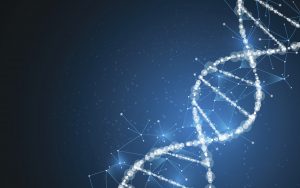
Uncanny emotional connections
She has found there is an uncanny emotional connections with biological relatives and ancestral locations, just like her brother-in-laws with Monticello. She has experienced a biological mother and daughter meeting and opening their makeup bags to discover that everything was the same. One reunited mother and daughter had dressed alike at their first meeting and had identical matching vintage sheet sets. She noted there were hundreds and hundreds stories of “serendipity.” And not just traits and talents, but behaviors and choices. “There really is something to our ancestors living on inside us,” she said distinctly.
Berry, another genealogy expert and host of Genealogy Roadshow also spoke to us at RootsTech about how fabulous DNA is for African Americans. She noted that many African Americans are also starting with DNA testing in their family history search, just like John did. For her it’s a complete game changer! She said so many African Americans want to trace their history back to Africa and DNA gets them there.
Berry said DNA can also help people understand the slave trade in North America too. By identifying the slave ship manifests and the ports it can be found what different countries the African slaves came from. So when the DNA is done and people find out they are Nigerian or from Ghana, and then check those manifests, they can see what port they came into and where their ancestors went from there. “It’s a big theory of mine,” Kenyatta said. She added that right now African genealogy is so hit or miss – trying to find the slave owner and trace from there can be so difficult and there are so many dead ends. But, DNA changes the game. DNA helps narrow and structure the search.
Which DNA tests are available?
We may not all find amazing stories linking us to Founding Fathers, but we can find out much about ourselves through our DNA. There are four companies putting out tests now – Ancestry DNA, 23 and Me, Family Tree DNA and My Heritage has just entered the scene. What is the best test to take? Since so many people are wanting to find their roots through DNA, the companies offer random sales on their kits, some for as low as $49. Watch the sites for the best deals. Sorting through all the options can be confusing, but Moore and Berry offered some advice on this.
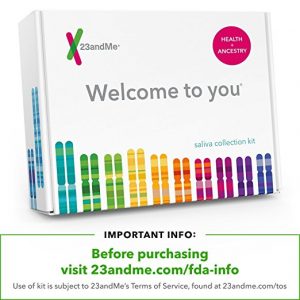
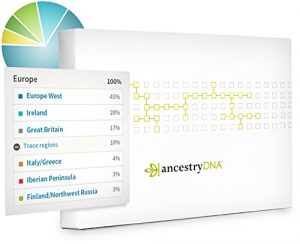
6. Which DNA is best? It depends on your goals.
Moore said it depends on your goals.
If you are looking to find a birth family, she recommends “fishing in every pond.” Are you just curious? Are you a beginner? That will help you define what is best. If there’s something very specific along the maternal line then mtDNA would be best, because it’s good for targeted research. Y-DNA testing does the same thing for a paternal line – but for the best overview, as mentioned before, she suggests the autosomal. She loves all the companies that produce the tests, but she recommends Ancestry DNA for starters, just because they have such a large database. My Heritage says they have the best DNA matches for Europeans, and if someone is just interested in ethnicity, she recommends 23 and Me.
Berry also likes 23 and Me because a lot of what she advises for African Americans needs to trace back to ethnicity and specific countries in Africa. Y-DNA testing is also powerful for African Americans, because many are trying to trace paternal lines because so many are broken.
DNA results are improving daily
Both Moore and Berry said that the advances in DNA testing are growing by leaps and bounds almost daily. Things once thought impossible are now occurring. CeCe said there are no bounds on where she sees DNA going. Just this week My Ancestry DNA released a map of what their 770,000 DNA samples have shown. “Each color on the map represents a present-day community of individuals tied together through their genetics. And the location of the dots show where each community’s ancestors lived over generations,” the Ancestry.com site says. The study shows how people migrated west and what countries did the most migrating. For a full text of the article, click here.
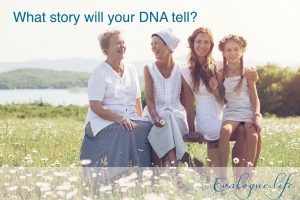
These bonds are strong
Moore loves seeing people who have been adopted connect to their biological families. She noted they don’t forget their adoptive families, but it just expands that circle of love. “Those biological bonds are strong,” she said. The amazing thing for her has been watching as everyday people have become genealogy scientists, doing their DNA and learning about where they came from. Because of their inquisitiveness, the DNA databases have been growing and allowing for more discoveries to be made. “Is the future of DNA research the key to unlocking the past?” Moore asks. “In 10 years what will be able to do with our knowledge?” she inquired. She tossed out the idea that we may even be able to recreate our ancestors faces and traits within that time frame. Wow. “With DNA the genealogical possibilities are basically unlimited.” We here at Evalogue.Life agree.
Have some questions? Ask us and we will try to find the answers. DNA, family history and family stories are all tied together. That’s one thing we know and we love it!
The science behind DNA
First some background. If you’re like me you may be wondering, just what is a DNA test? DNA is our genetic code and it determines traits like eye color and even aspects of our personalities. DNA tests show the origins of where we came from by tracking our personal codes. We hear about them in police investigations and paternity lawsuits, but what does it have to do with genealogy? A great family history website, www.familyhistorydaily.com gives a description. It says there are different types of DNA tests – mtDNA tests, Y-DNA test and Autosomal DNA tests. The mtDNA tests examine your maternal line, Y-DNA tests examine you paternal line and Autosomal tests (like from Ancestry), seem to be the most popular and look at information across the genome to “provide clues to our personal ancestral history on a much broader scale (than the other two.)” the site said. With the autosome test, testers can get a pretty general breakdown of their ancestors’ geographical origins as well the chance to find people who connect with your own personal ancestry. Plus, the more people in your family who test, the more likely it is to break down some of those brick walls you are hitting. Why? Because with more family members testing, you can more closely hone in on where your ancestors come from.
Here is a full list of our video interviews with expert genealogists and DNA:
CeCeMoore:
- Which DNA test should I do? Where 23andMe shines
- Ancestry DNA test: Which DNA test should I do? Expert weighs in.
- CeCe Moore: common DNA results for Mexicans
- CeCe Moore shares the most shocking DNA discovery in her career
Kenyatta D. Berry:
- Kenyatta D. Berry on DNA as a game changer in African American genealogy
- Kenyatta D Berry on African American naming patterns
- Kenyatta D Berry on genealogists helping each other
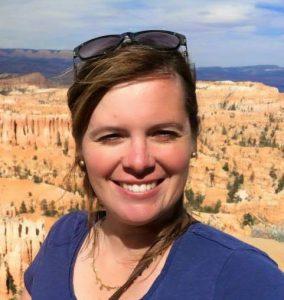 Rachel J. Trotter is a writer at Evalogue.Life, where we tell personal and family stories that inspire, and help you tell yours. She has worked as a writer since her college days over 20 years ago. She loves telling people’s stories. She lives in Ogden, Utah and is busy raising six children and loves working on family history alongside her husband, Mat.
Rachel J. Trotter is a writer at Evalogue.Life, where we tell personal and family stories that inspire, and help you tell yours. She has worked as a writer since her college days over 20 years ago. She loves telling people’s stories. She lives in Ogden, Utah and is busy raising six children and loves working on family history alongside her husband, Mat.
This post contains affiliate links. If you purchase products or services we recommend, it helps us keep the lights on and we really appreciate it!
Subscribe!

Get our weekly email with tips to tell your story and the Sunday Edition. (Free, of course)

